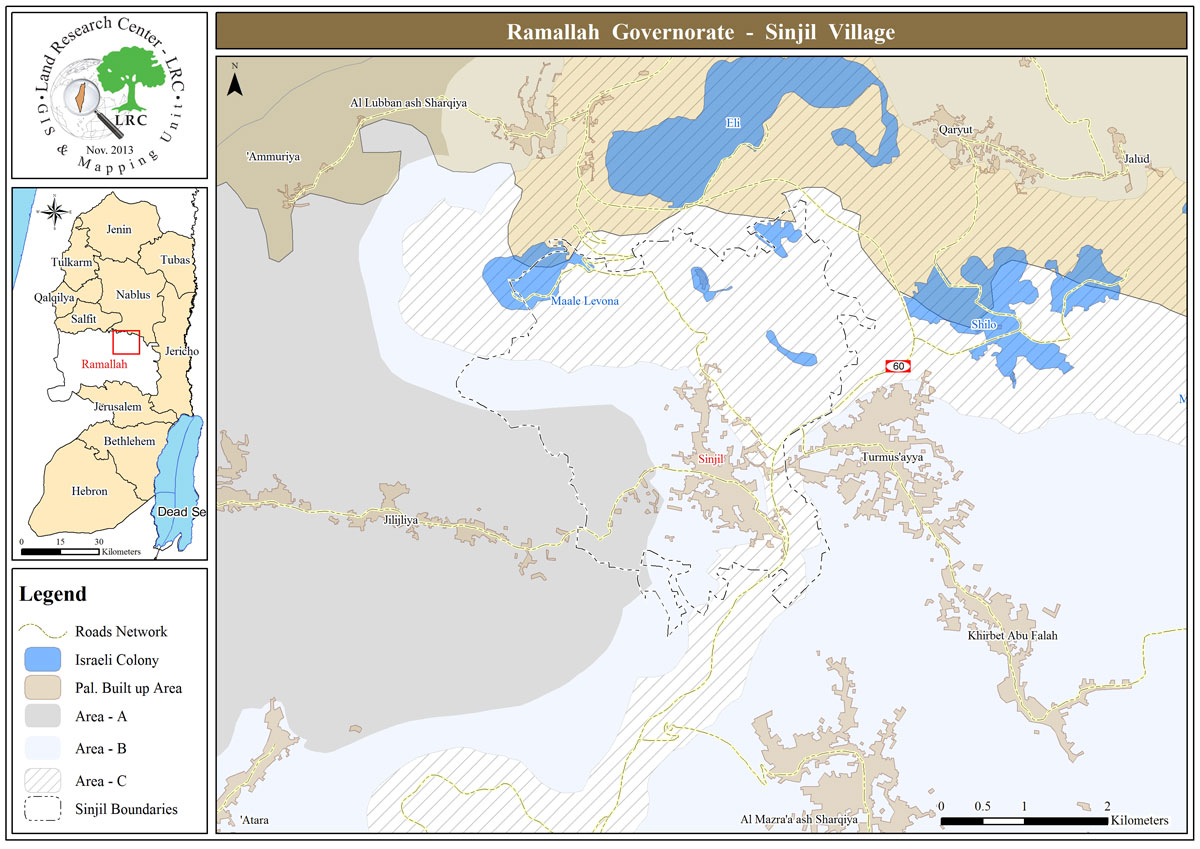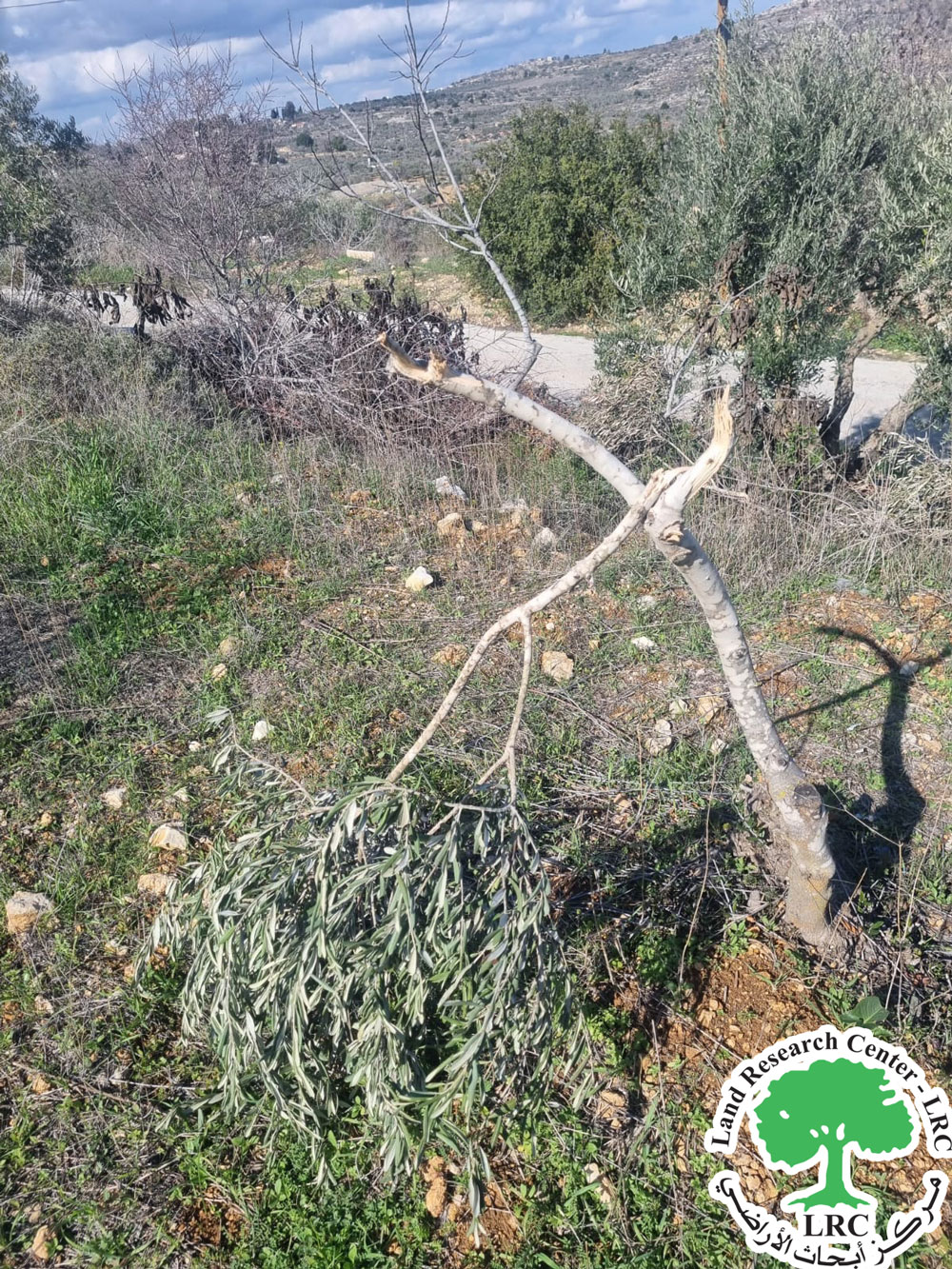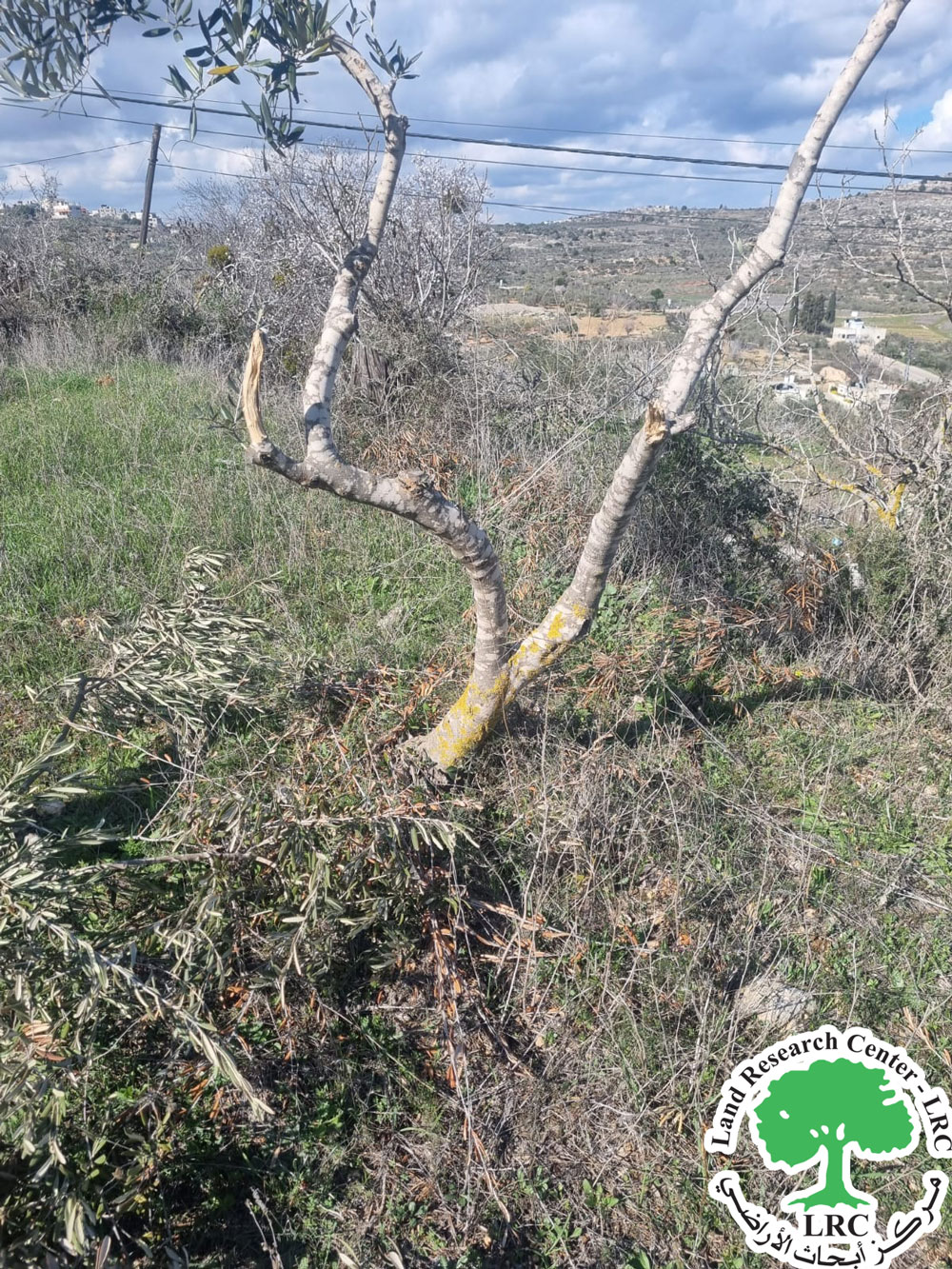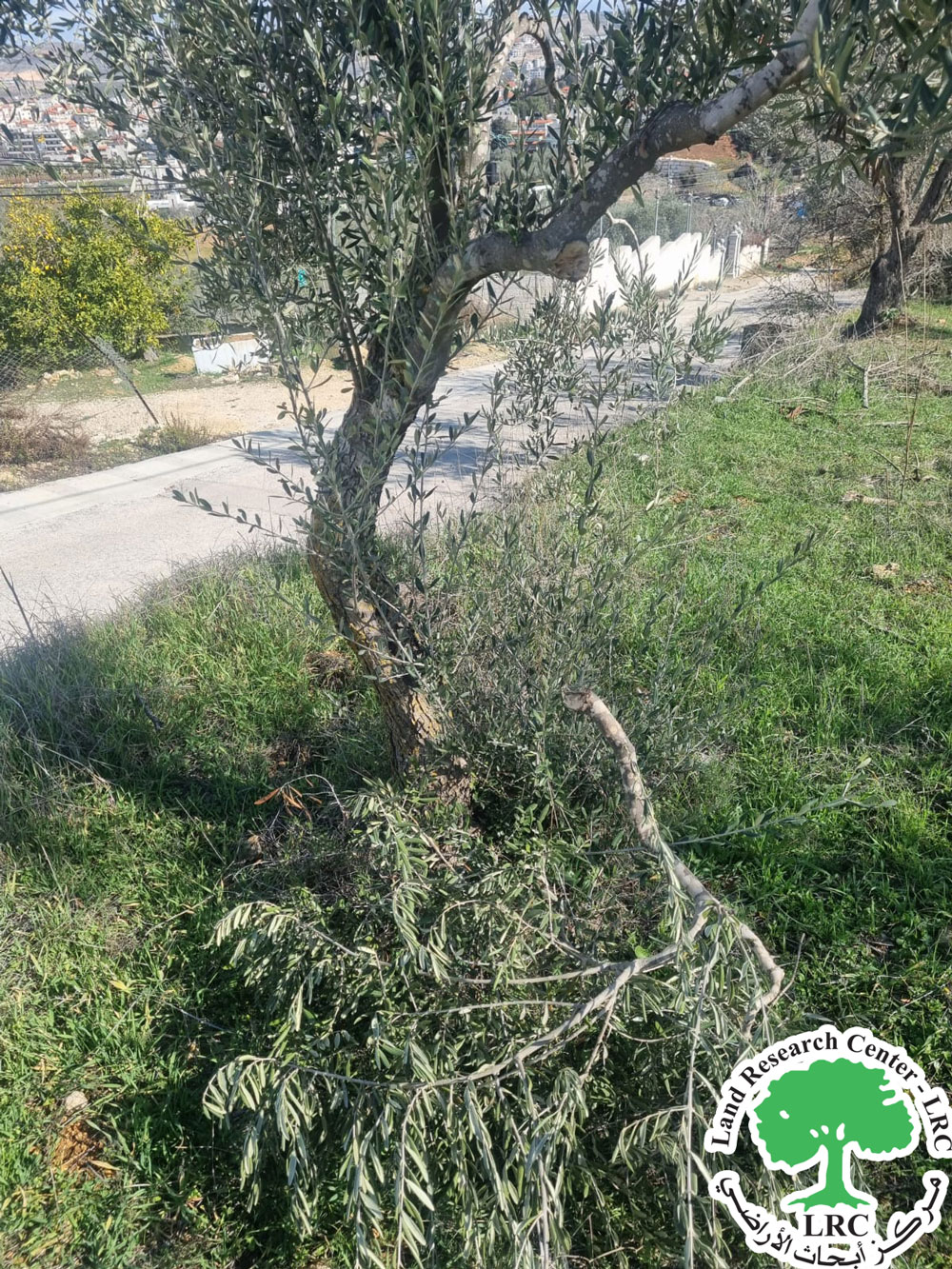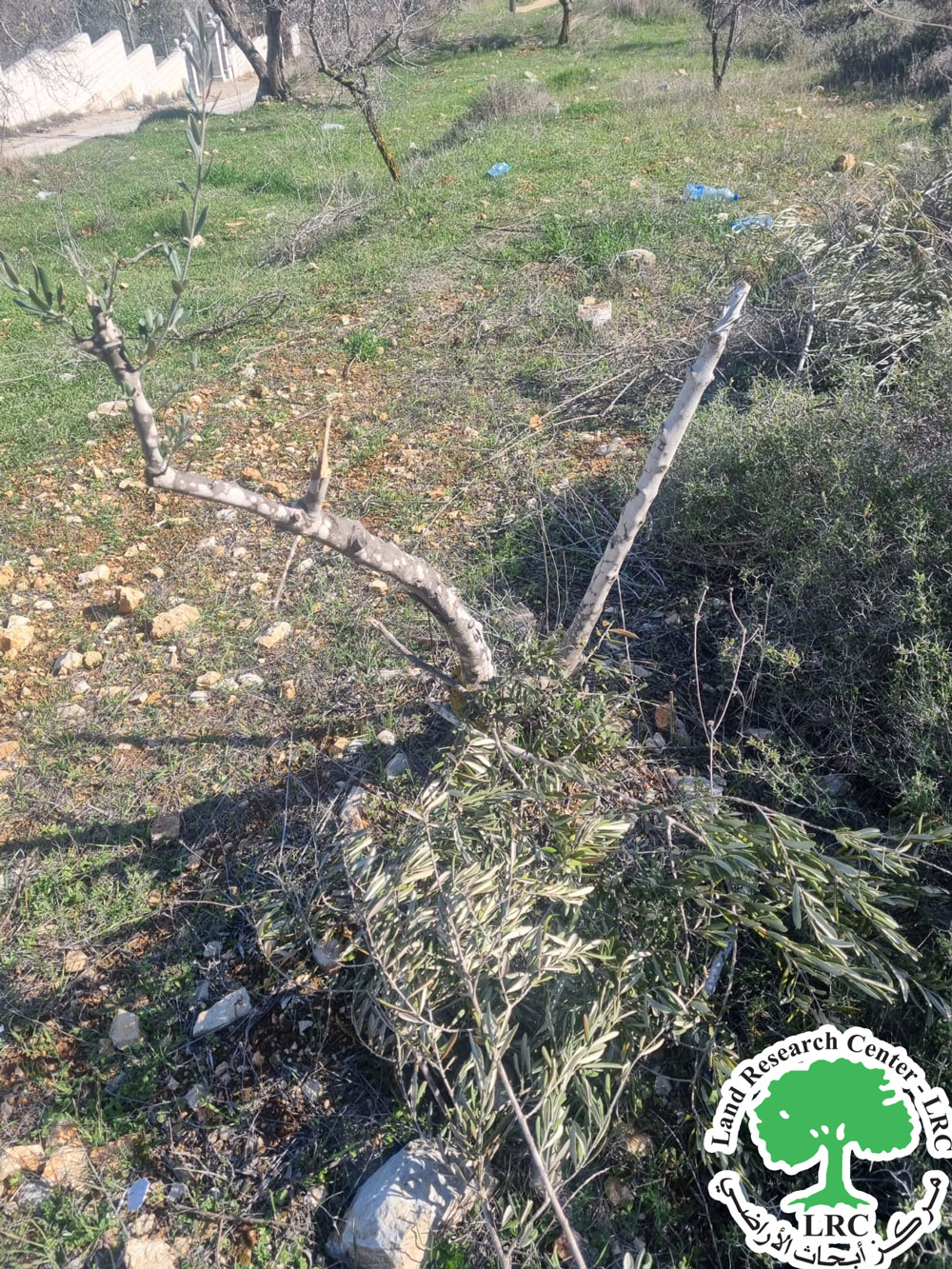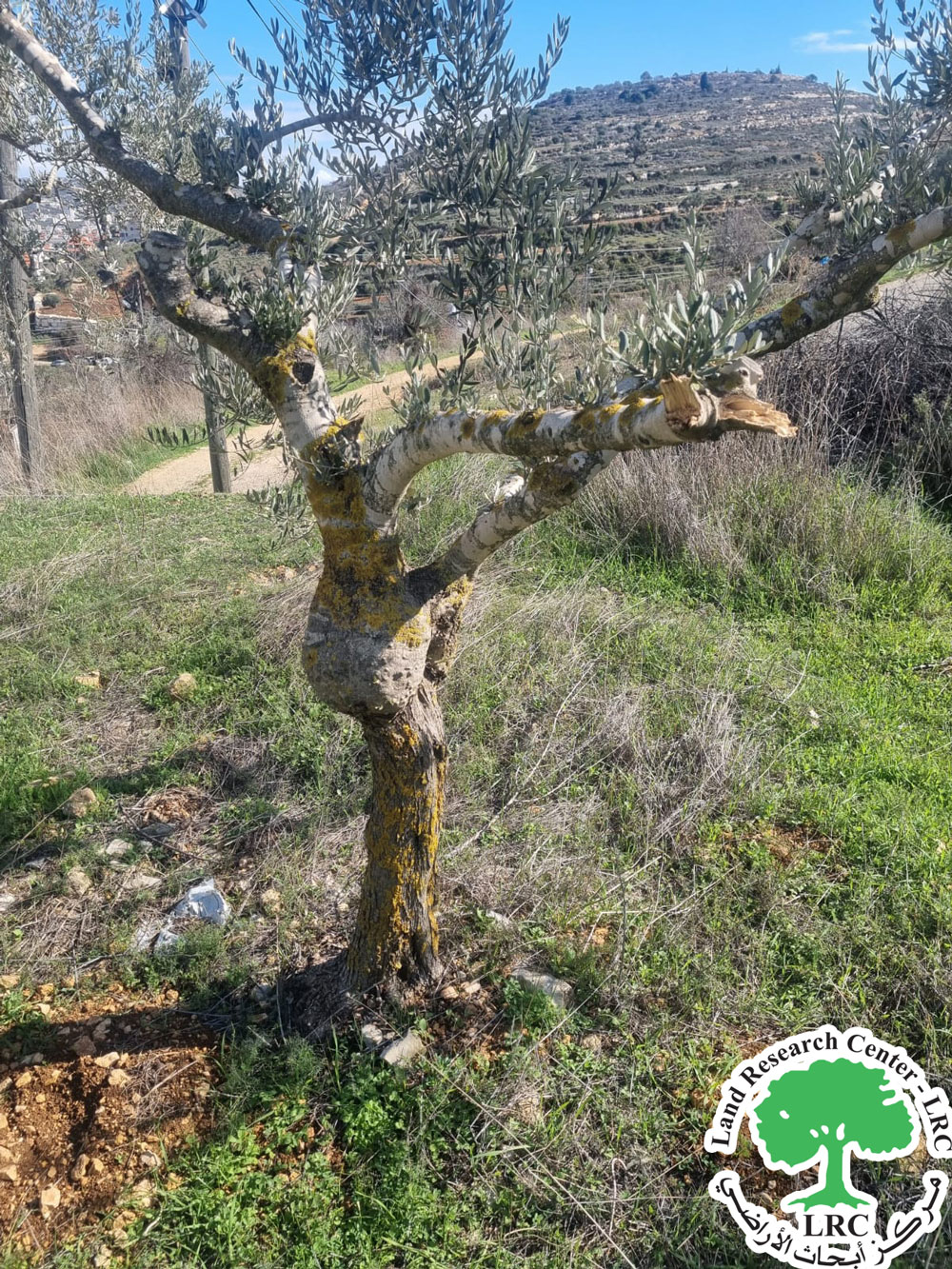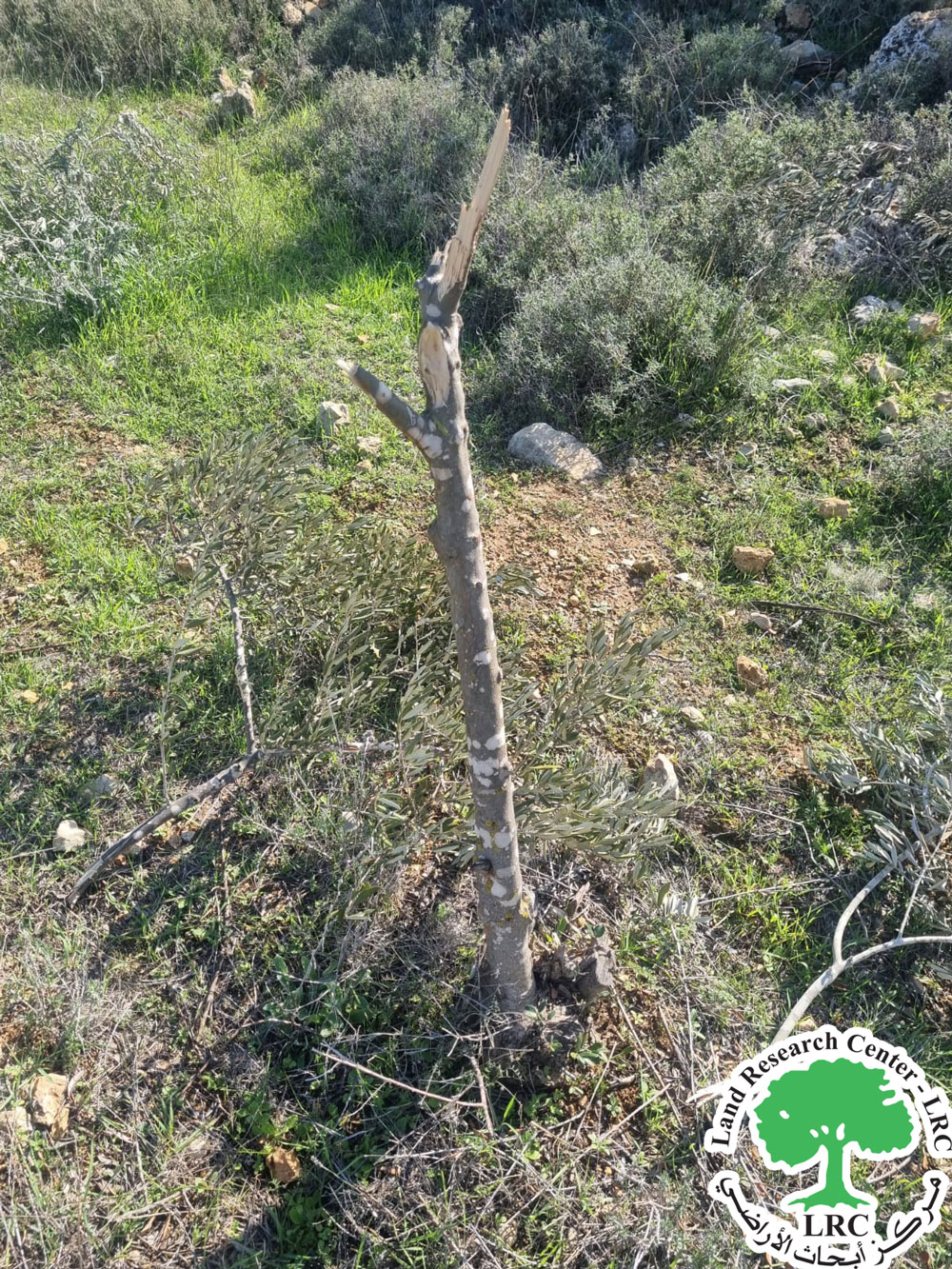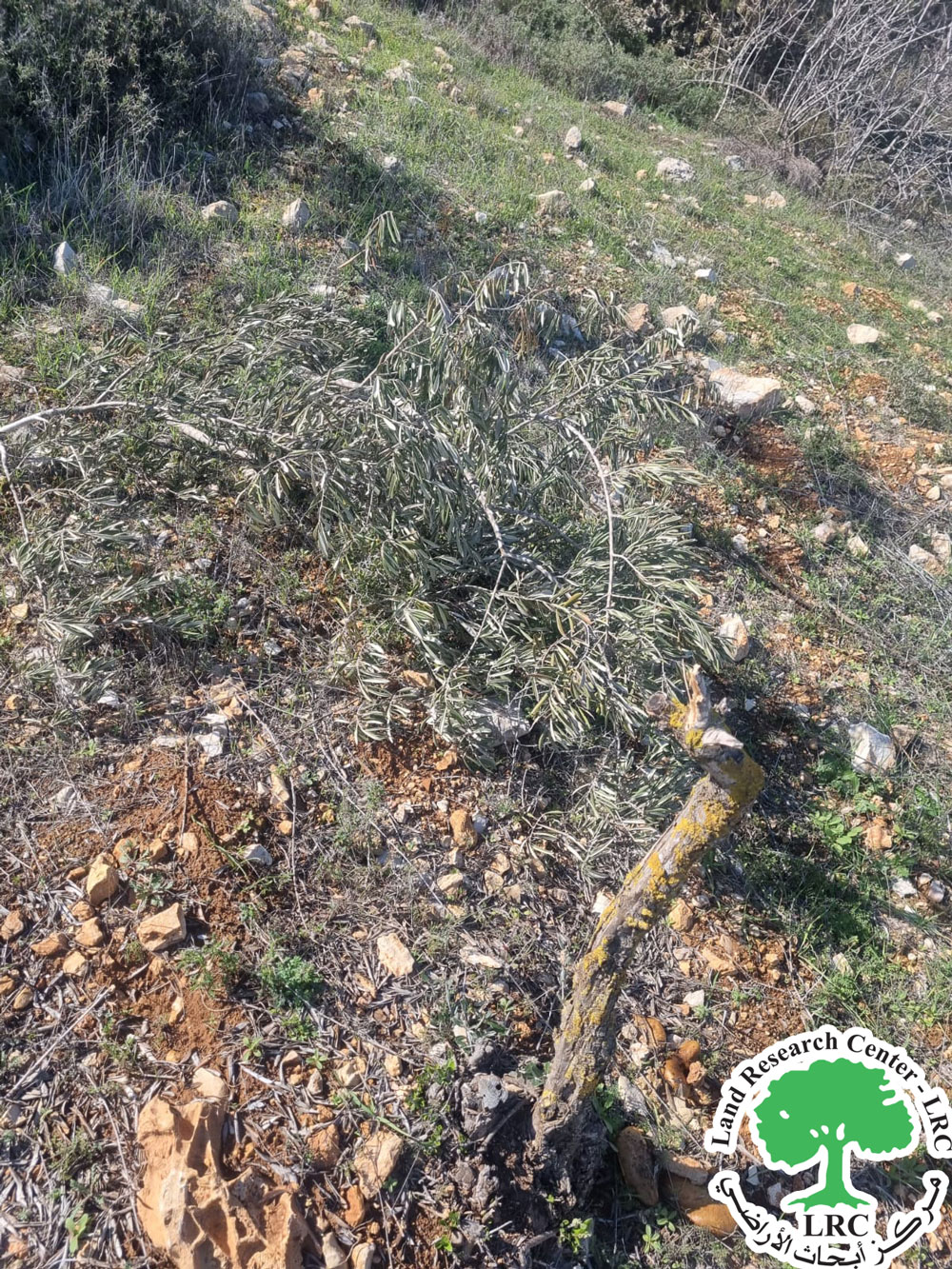Settlers from "Shilo" Cut 15 Olive Trees in Sinjil Village, North of Ramallah
Violation: Cutting and destroying 15 olive trees.
Location: Sinjil Town, located to the north of Ramallah city.
Date of Violation: January 24, 2025.
Perpetrator: A group of settlers.
Impacted farmer: Farmer Fayez Atef Awashra.
Description:
A group of settlers, believed to be from the "Shilo" settlement, which occupies parts of the lands of Sinjil Town, north of Ramallah Governorate, raided the "Bab Al-Wad" area, located northeast of Sinjil, overlooking the farms belonging to the "Shilo" settlement, on the morning of Friday, January 24, 2025. The settlers targeted an olive grove of 2200 square meters, owned by farmer Fayez Atef Awashra, the breadwinner of a family of five members, including one child and two girls.
It is noted that the settlers used sharp tools to saw and destroy 15 olive trees, estimated to be about 30 years old, causing partial damage to the trees.
The Impacted farmer reported:
"The land that was targeted was inherited from my ancestors, and it is located just a few meters away from the fence that the occupation is building at the eastern entrance of the town.
In the past, it was easy to access the land, plow it, and take care of the trees. However, for nearly a year now, coinciding with the occupation starting to clear land near the entrance of the town to build a separation fence, we have been facing harassment from the occupation's army and the settlers. Despite this, I have continued to go to my land and take care of it, despite the great danger we face. On Friday, I went to my land as usual, and I noticed that the settlers had cut the branches of the trees and caused partial damage to them. But I am determined to stay on my land despite the threats because I know that if I leave, the settlers will seize it."
Over the past two years, the field researcher has documented a large number of violations related to the cutting and destruction of trees in Sinjil Town, as the occupation has turned large areas of the town's land into militarized closed zones, particularly in areas like Abu Al-Awf, Al-Rafid, Khillat Azral, and others. It has become difficult for farmers to access these lands, to the point that there are more than 2000 dunams where farmers have been unable to harvest olives or even enter.
This situation has paved the way for attacks on the trees by settlers, resulting in the cutting of dozens, if not hundreds, of trees over the past two years.
Introduction to Sinjil Town[[1]]
Sinjil Town is located 20 km to the north of Ramallah city. It is bordered to the north by Al-Lubban Al-Sharqiya village, to the west by Abwein and Jilijliya villages, to the east by Qaryut and Turmus'ayya villages, and to the south by Al Mazra'a ash Sharqiya village. The town's population was 5,236 as of 2007. The total area of the town is 14,028 dunams, of which 888 dunams are used for the town's built-up area.
Israeli settlements have confiscated 551 dunams of the town's land. Two settlements are located on part of the town's land: the first, Maale Levona, was established in 1983 and seized 298 dunams of the town’s land, housing 497 settlers. The second “Elie Settlement” which was established in 1984 and occupies part of the town's land, having seized 253 dunams, with a population of 2,058 settlers. Additionally, the Bypass Road No. 60 has seized more than 246 dunams.
Legal Commentary:
The Palestinian environment, in general, is subjected to numerous environmental violations by the Israeli occupation, disregarding all international and national laws and conventions related to the protection of environmental rights. The right to live in a clean and healthy environment is a fundamental human right that has been inherent to mankind since the beginning of creation. The occupation often attempts to present itself as being concerned with international environmental issues, despite having signed major environmental protection agreements, such as the Basel Convention in 1989, the Rotterdam Convention in 2008, the Stockholm Convention in 2001, and the Ramsar Convention in 1971, as well as air quality and climate protocols. Nevertheless, Israel continues to violate all of these treaties without accountability or oversight.
In addition to the provisions regarding the right to enjoy a clean and healthy environment for all those under military occupation according to international laws, conventions, and treaties, such as the International Covenant on Economic, Social, and Cultural Rights, adopted by the United Nations General Assembly in Resolution 2200A (d-21) on December 16, 1966, in Article (1), paragraph (2): "...All peoples, in pursuit of their own objectives, have the right to freely dispose of their natural wealth and resources without prejudice to any obligations arising from the international economic cooperation based on the principle of mutual benefit and international law. In no case shall a people be deprived of its means of subsistence...".
Undoubtedly, the violations carried out by the Israeli occupation contradicts with the laws of the occupation state itself before any other laws. Referring to the details of this case, the Israeli Penal Code of 1977 and its amendments stipulate that trespassing on someone else's property to commit a criminal act punishable by law is an offense. By reading Article 452 of the Israeli Penal Code, we find that the law punishes those who commit an offense or cause damage to property such as (a water well, a water reservoir, a dam, a floodgate, planted trees, a bridge, a tank, or a water cistern) with a penalty of five years imprisonment.
In addition to, Article 447 of the Penal Code states: "Anyone who does any of the following with the intent to intimidate, insult, or harass the property owner or commit a crime shall be punished by imprisonment for two years:
(1) Enters or crosses the property;
(2) After entering the property legally, remains there unlawfully.
(b) A crime is committed under this section if the offender carries a firearm or a cold weapon, and the punishment is imprisonment for four years."
By reading the text of this article, we find that the Israeli Penal Code criminalizes the mere act of entering someone else's property without permission, with the intent to insult, harass, or intimidate, and punishes this act with two years of imprisonment. The punishment increases to four years if the offender commits any act on someone else's property using a weapon or a sharp tool, referred to as a "cold weapon." This is explicitly criminalized in the text of Article 447 of the aforementioned Israeli Penal Code. Additionally, a penalty of 5 years imprisonment is imposed on those who cause damage to property mentioned in Article 452. Therefore, the violator, the "settler," should face a compounded violation: the first for entering a property that is not theirs, and the second for trespassing on and cutting down the planted trees, resulting in environmental harm.
Therefore, the Israeli aggressor blatantly violates both international laws and treaties, as well as the internal laws of the "occupying state," in a clear violation. Consequently, the "Israeli judiciary" must hold the settlers accountable and punish them for these actions based on the provisions of their own laws. However, there is no legal accountability for the aggressors by the Israeli judiciary. Despite this, every human being on this earth has the right to live in a clean, healthy, and safe environment, free from any violation or aggression against it.
[1] Source: LRC – GIS.
مشروع: حماية الحقوق البيئية الفلسطينية في مناطق "ج" SPERAC IV - FCDO
إخلاء المسؤولية: الآراء ووجهات النظر الواردة في هذا التقرير هي آراء ووجهات نظر مركز أبحاث الأراضي ولا تعكس بالضرورة وجهات نظر أو مواقف الجهة المانحة للمشروع؛ المجلس النرويجي. للاجئين
